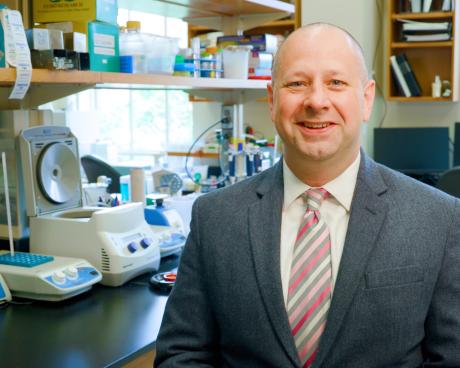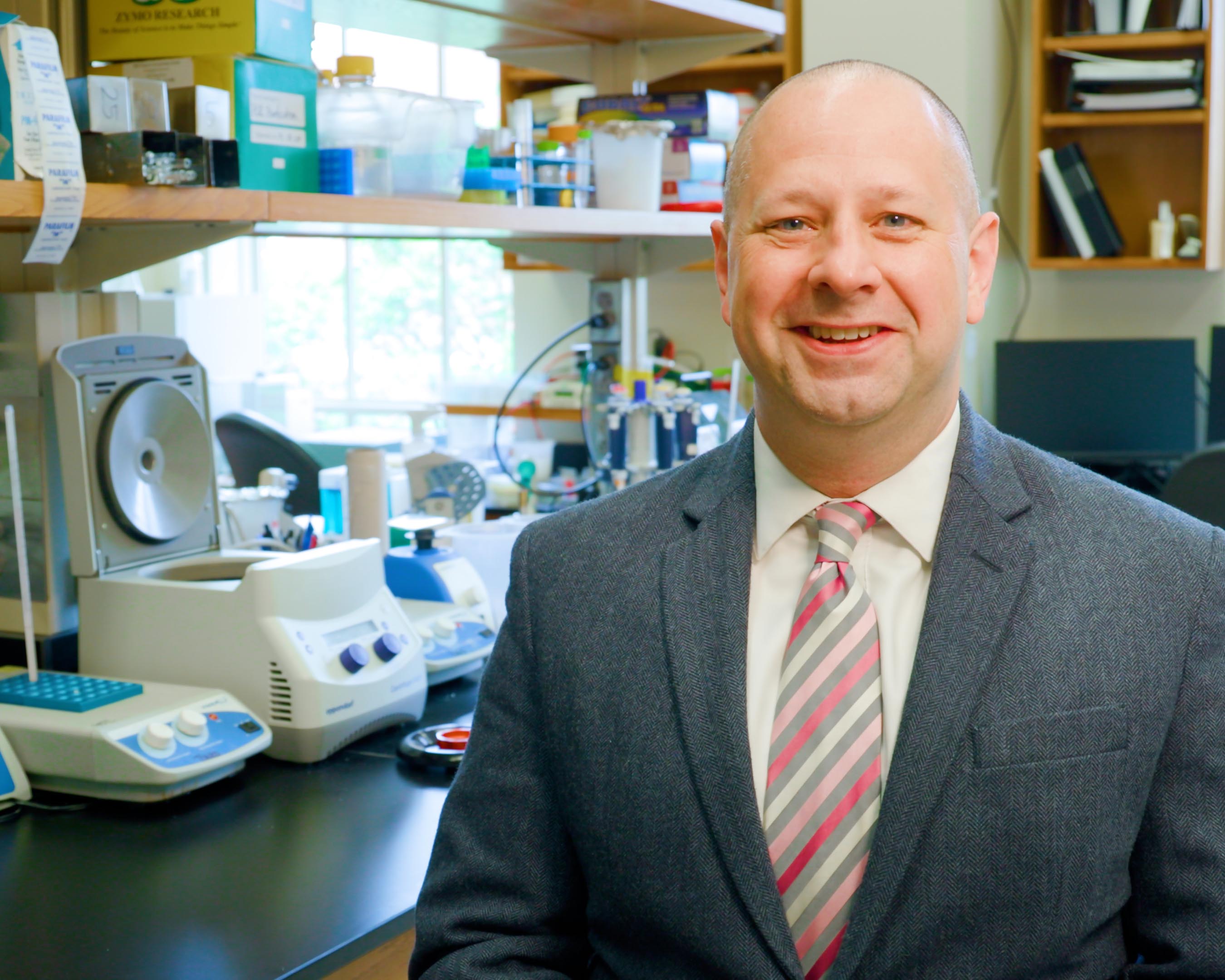Tomko claims FSU's most prestigious teaching award


Florida State University Associate Professor of Biomedical Sciences Robert Tomko Jr. has been recognized with the university's most prestigious teaching award for his dedication to fostering strong relationships with his students and building a learning community based on support, encouragement, clarity and honesty.
Tomko, who joined the College of Medicine in 2015, received FSU’s 2024-2025 Distinguished Teacher Award during the annual Faculty Awards Celebration on Tuesday, April 22, at the Student Union ballrooms.
“Dr. Tomko brings a deep passion for teaching and mentoring, especially in helping students understand complex science in clear, meaningful ways,” said FSU Provost Jim Clark. “He’s been recognized many times for his outstanding teaching and research, and he’s a role model for his students and colleagues alike.”
Faculty members who have won a University Teaching Award at least five years ago and can demonstrate ongoing outstanding teaching for the next five years are eligible for the award. Tomko, who won the University Teaching Award in 2019, will receive a $7,500 prize from the university.
“I'm honored and humbled to be recognized,” Tomko said. “The College of Medicine and my department really appreciate the importance of teaching budding scientists and clinicians, and I was fortunate enough to have outstanding mentors in my early days that helped me to develop my teaching skills and approach.”
Tomko, who teaches courses to medical, physician assistant and doctoral students, believes his job as an educator is to ensure that his students are prepared for the road ahead so that the College of Medicine produces “a cadre of talented and objective scientists and clinicians to carry academic discovery and medicine into the future.”
He expects students to develop critical thinking and problem-solving skills, emulate professional behavior, and become proactive in their academic and professional lives. He models high standards of professionalism that will be expected of them and encourages respect and punctuality.
“I frequently remind students that they are the product of their own efforts, and that they must attack their goals and innovate ways to be successful at times,” Tomko wrote in his award application. “All students know my mantra: Nothing worth doing is easy.”
As an instructor of Clinical Pharmacology I in the Physician Assistant program, one of Tomko’s goals is to train future clinicians to be prepared for rare cases when the typical treatment may be ineffective by using a combination of logic, deep medical knowledge, and creativity to identify alternative causes or drugs for a given set of symptoms.
By employing a tiered system of knowledge development, Tomko compels students to make more distant logical connections that can help them identify and pharmacologically diagnose outlier conditions. He uses documented medical oddities to demonstrate that typical treatments may not always be effective and guides students to solutions through open-ended questions and gentle nudges.
“A given set of symptoms usually indicates a specific disease or condition…until it doesn’t, and the prescribed treatment fails,” Tomko wrote. “When that happens, clinicians must be willing to second-guess their initial diagnoses and consider possible treatments that are less on the beaten path.”
Watch the Tomko interview
Quill Thomas, a second-year graduate student in the Department of Biomedical Sciences at the College of Medicine, said Tomko always goes above and beyond for students.
“He goes out of his way to support students in any way that they need,” Thomas said. “He's a great mentor to his students and to other students as well. I know that he's had one-on-one meetings with other graduate students when they needed help or guidance or advice with other things.”
Tomko said that one of his greatest joys as a teacher is seeing a student master complicated concepts.
“Seeing all the pieces sort of slot together and that moment of excitement when everything clicks and they can start to apply it to all the important things we'll need to do with that is really great,” he said
Tomko leads the Tomko Lab, which investigates the structure and function of the ubiquitin-proteasome system to aid drug discovery efforts for treating cancer and infectious diseases. His strong record of accomplishment in teaching, service, and research also earned him a Developing Scholar Award this year. This award is given to mid-career faculty at the associate professor level to support their research programs.
Terracciano among four from college also honored
Four other College of Medicine faculty or staff members, each from a different department, were also honored at the university-wide celebration, held at the Student Union ballrooms.
Department of Geriatrics Professor Antonio Terracciano, who joined the College of Medicine in 2012, received the Distinguished Research Professor Award for his work examining the interplay of psychological, cultural and genetic factors shaping physical and mental health across the lifespan. Much of his research is funded through the National Institute on Aging, a division of the National Institutes of Health (NIH). Terracciano is one of the most widely published faculty members within the college.
Debra Cole, director of didactic education and assistant professor within the School of Physician Assistant Practice, and Yang Hou, assistant professor in the Department of Behavioral Sciences and Social Medicine, received the Inclusive Teaching & Mentoring Award.
The Interdisciplinary Medical Sciences program was represented among the recipients with Ann DelRossi selected for an Outstanding Undergraduate Advising Award. The IMS program is one of several of the college’s pathway programs to medical school.
Story by Amy Farnum-Patronis, University Communications

